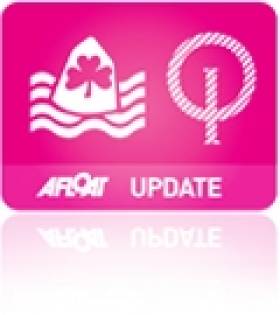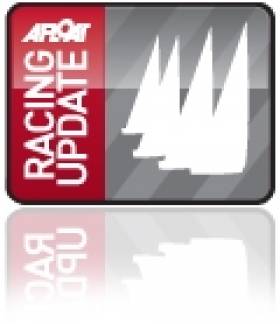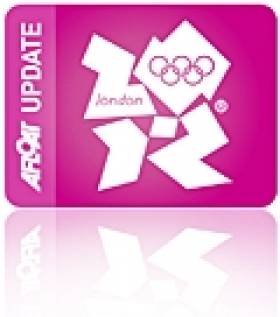Displaying items by tag: Pwhelli
McCann Leads Irish Optimist Challenge in Wales
Cork's Peter MCann Leads Irish hopes against some of the best of Britain's up and coming young sailors who are ready for a full week of racing at the 2011 Volvo Gill Optimist Open and National Championships, Pwllheli Sailing Club. Over 450 British and International competitors, from 15 nations will take part in the annual event from Saturday 30th July – Friday 5th August.
Ireland's Optimist Association arranged pre-event coaching in Pwhelli for Irish sailors attending.
Racing throughout the week will be split into five separate categories, the Senior Fleet for those aged thirteen to fifteen, the Junior Fleet for those aged eight to twelve, Regatta Racing aged eight and above and for those that are looking for transition to the Junior fleet, Regatta Coaching for those competing at the event for the first time and Mini Racers aged eight and nine, who are just learning to sail.
"This year we have more international entries than last year with a number of new countries involved including South Africa, Kenya, New Zealand and Finland. It is fantastic to attract so many young sailors from across the globe. In the British fleets some of the top sailors have progressed and moved on so the regatta is wide open. The next generation are coming through and will be using the National Championships to find their positions within their fleets. It will be an exciting event for all." Said Simon Rogers, ICOA (UK) Technical Officer.
In the senior fleet, 2011 World squad members will be using the opportunity to practice against overseas competition. 2011 Volvo Gill Optimist Inland Champion, Welshman Matt Whitfield (14, Penarth YC), Jamie Calder (13, Loch Tummel) and Joseph Burns (14, Spinnaker SC) are all looking to the take home the National Champion title. Gill Race Team member, Sarah Norbury will be looking to defend her top British girl title fending off competition from 2011 Euro team members Mimi El-Khazindar (14, Royal Lymington) and Georgia Booth (14, Scaling Dam SC).
2009 and 2010 Junior National Champion, Freddie Grogono (13, St Mawes SC) has progressed to the Senior Fleet and will be looking to triumph amongst his new competitors.
In the Junior fleet, 2011 Volvo Gill Optimist Inland Champion, William Heathcote (9, Royal Lymington) will be looking to repeat his success at Graftham Water but faces stiff competition from newly selected Gill Race team and World squad member Milo Gill-Taylor (11, Spinnaker YC).
From overseas Spain's Nestor Cano (14, C Nautic Vilassar De Mar) and Ireland's Peter McCann (14, Royal Cork YC) will be both be looking to repeat last year's success with top ten finishes "There are some really good sailors competing here in Pwllheli. It is my second National Championships over here and I really enjoyed last year in Weymouth and Portland. Compared to back home it is definitely wavier and the currents are different. It can also be hard to tell where the gust is coming from, but I'm really looking forward to getting out there and starting the racing" Said Nestor.
This is the first year that Volvo and Gill have jointly sponsored the Optimist Sailing Class in the UK and includes support for three major annual championships: The Volvo Gill Optimist Inland Championships, the Volvo Gill Optimist Open and National Championships and the Volvo Gill Optimist End of Season Championships which will be taking place at Rutland Sailing Club, 8-9 October. (Additional reporting by Sarah Alexander/Volvo)
Racing Update: Third in Melges Pre-worlds, SB3 Worlds, Gung Ho top on Dublin Bay, ISORA, Foynes to Fenit
In other offshore sailing, defending champion Brian O'Donnell, on Whyte Dolphin is expected to defend his Gold Leaf trophy on a race from Foynes to Fenit.
Murphy Wins UK Laser Qualifier
National Yacht Club Olympic campaigner Annalise Murphy won the UK Laser Radial Qualifiers in North Wales at the weekend. It was a short, sharp affair with no wind in Pwhelli on Saturday. She scored a 1,1,6 in the three races on Sunday sailing in a southerly 15-knot breeze and in a mixed fleet of 79 entrants.
There was no doubt that race two of the series was owned by Murphy who had finished 55th in the first race according to a UK Laser report. Murphy's upwind speed put the rest of the fleet to shame and she pulled well clear leaving the rest of the fleet to scrap over the minor places. Brewster who has been training with Murphy in Ireland obviously had some of the strong wind technique rubbed off on her to take second with Phil McCoy coming in third.Race three and Hannah Snellgrove had the best start but Murphy footed off underneath and with the first shift tacked and was never seen again. Harvey showed that he can not only perform in the light but also the wind, putting in a convincing second, with Olly Porter taking third.
Race four and Murphy was unable to clear the pin at start time and had to tack duck the whole fleet, leaving her to claw her way back through the fleet which was being initially led by Harvey. The battle at the final windward mark was between Porter and Harvey who were well clear of the chasing pack, with Emmett holding off Murphy for third. This time downwind Porter got the better of Harvey, securing the bullet with Harvey second. This was more than enough for Harvey to take the event with Porter's bullet putting him into second. Murphy had a disappointing downwind to finish seventh and a drop to third overall.
However upon returning ashore it transpired that Harvey had been black flagged, promoting Emmett to second in the race. This dropped Harvey to fifth overall and promoted Murphy to take the event on tie breaker!
Overall results:
1st Annalise Murphy 8pts
2nd Olly Porter 8pts
3rd Andrea Brewster 11pts
4th Cameron Douglas 12pts
5th Ross Harvey 13pts
6th Hannah Snellgrove 17pts
Murphy (21) is in Weymouth today at a two week training camp before Ireland's first Olympic qualification event at the Delta Lloyd regatta in Holland. It's a process however that has got easier for the Dun Laoghaire sailor following the withdrawal of the Belfast lough campaigner Tiffany Brien.
Far from hanging up her boots though Brien was back on home waters winning the Laser Radial Ulster Championships at Royal North Ireland YC, Cultra last weekend.

































































